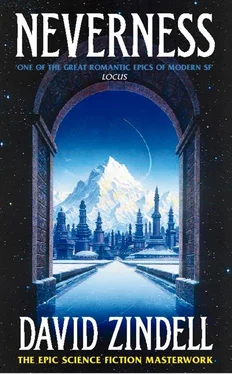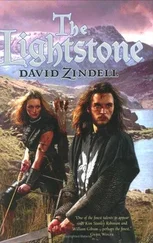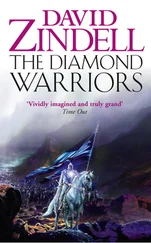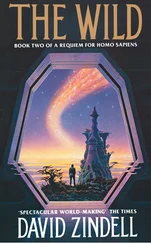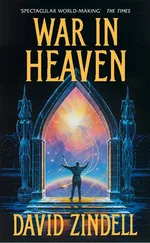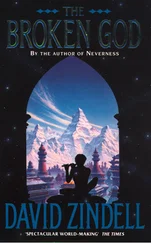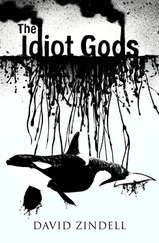DAVID ZINDELL
Neverness
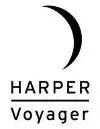
This novel is entirely a work of fiction. The names characters and incidents portrayed in it are the work of the author’s imagination. Any resemblance to actual persons, living or dead, events of localities is entirely coincidental.
HarperVoyager
An imprint of HarperCollins Publishers Ltd.
1 London Bridge Street
London SE1 9GF
www.harpercollins.co.uk
First published in Great Britain by Grafton 1988
Copyright © David Zindell 1988
David Zindell asserts the moral right to be identified as the author of this work
A catalogue copy of this book is available from the British Library
All rights reserved under International and Pan-American Copyright Conventions. By payment of the required fees, you have been granted the nonexclusive, nontransferable right to access and read the text of this ebook on-screen. No part of this text may be reproduced, transmitted, downloaded, decompiled, reverse-engineered, or stored in or introduced into any information storage and retrieval system, in any form or by any means, whether electronic or mechanical, now known or hereafter invented, without the express written permission of HarperCollins ebooks
HarperCollins Publishers has made every reasonable effort to ensure that any picture content and written content in this ebook has been included or removed in accordance with the contractual and technological constraints in operation at the time of publication
Source ISBN: 9780007305179
Ebook Edition © AUGUST 2016 ISBN: 9780007397952
Version: 2016-09-01
Neverness is Zindell’s highly acclaimed first novel. A reviewer in the New Scientist wrote of it in 1992: ‘David Zindell writes of interstellar mathematics in poetic prose that is a joy to read’.
His second novel, The Broken God , Book One of A Requiem for Homo Sapiens, is a sequel to Neverness . It has been hailed as Dune for the 1990s and was equally well-received: ‘SF as it ought to be: challenging, imaginative, thought-provoking and well-written. Zindell has placed himself at the forefront of literary SF’.
Times Literary Supplement
The Wild , Book Two of A Requiem for Homo Sapiens was also published to great acclaim: ‘A disturbing vision of the impending collapse of a transgalactic society … the ideas are hard SF with philosophical undertones, and the story is compelling’.
New Scientist
Zindell has completed A Requiem for Homo Sapiens with War in Heaven , available now, in hardback. He lives in Boulder, Colorado.
For Melody
Cover
Title Page
Copyright
Praise
Dedication
1 Journeymen Die
2 A Pilot’s Vows
3 The Timekeeper’s Tower
4 The Number Storm
5 The Solid State Entity
6 The Image of Man
7 Rainer’s Sculpture
8 Kweitkel
9 Yuri the Wise
10 The Aklia
11 The Old Man of the Cave
12 The Little Death
13 Hunger
14 The Radio
15 The Eyes of a Scryer
16 The Death of a Pilot
17 Agathange
18 The Tycho’s Conjecture
19 The Parable of the Mad King
20 The Rings of Qallar
21 The Eyes of a Child
22 The Hanuman-Ordando Paradox
23 Plutonium Spring
24 Deus ex Machina
25 The Great Ocean of Truth
26 Kalinda of the Flowers
27 Kelkemesh
28 Ananke
29 The Secret of Life
30 Neverness
Keep Reading
Also by the Author
About the Publisher
On Old Earth the ancients often wondered at the origin of life, and they created many myths to explain the mystery of mysteries. There was Mumu the mother goddess who swallowed a great snake which multiplied inside of her and whose nine billion children ate their way through her belly into the light of day and so became the animals of the land and the fishes of the sea. There was a father god, Yahweh, who created Earth and the heavens in six days and who called forth the birds and the beasts on days five and six. There was a fertility goddess and a goddess of chance named Random Mutation. And so on. And so on. The truth is, life throughout the galaxy was everywhere seeded by a race known as the Ieldra. Of course the origin of the Ieldra is unknown and perhaps unknowable; the ultimate mystery remains.
from A Requiem for Homo Sapiens by Horthy Hosthoh, Timekeeper and Lord Horologe of the Order of Mystic Mathematicians and Other Seekers of the Ineffable Flame
There is infinite hope, but not for Man.
Franz Kafka, Holocaust Century Fabulist
Long before we knew that the price of the wisdom and immortality we sought would be almost beyond our means to pay, when man – what was left of man – was still like a child playing with pebbles and shells by the seashore, in the time of the quest for the mystery known as the Elder Eddas, I heard the call of the stars and prepared to leave the city of my birth and death.
I call her Neverness. The founders of our Order, so the Timekeeper once told me, having discovered a neighbourhood of space where the pathways through the manifold twist and loop together like a hard knot of string, decided to build our city on a nearby planet named Icefall. Because such knots of space were once thought to be rare or nonexistent – the cantors now call them thickspace – our first Timekeeper declared that we could fall through the galaxy until the universe collapsed inward upon itself and never find a denser thickspace. How many billions of pathways converge around our cool yellow star no one knows. There are probably an infinite number of them. The ancient cantors, believing that their theorems proved the impossibility of an infinite thickspace, had predicted that our pilots would never find the topological nexus that they sought. So when our first Lord Pilot had fallen out of the manifold above the small, cold, mountainous island that was to shelter our beloved and doomed city, he named her Neverness, in mockery of the nay-saying academicians. Of course to this day the cantors call her the Unreal City, but few pay them much attention. I, Mallory Ringess, whose duty it is to set forth here the history of the golden age and great crisis of our Order, shall follow the tradition of the pilots who came before me. Neverness – so I knew her as a child when I entered the novitiate such a short time ago; Neverness I call her now; Neverness she will always remain.
On the fourteenth day of false winter in the year 2929 since the founding of Neverness, Leopold Soli, my uncle and Lord Pilot of our Order, returned to our city after a journey lasting twenty-five years – four years longer than I had been alive. Many pilots, my mother and Aunt Justine among them, had thought him dead, lost in the inky veils of the manifold or perhaps incinerated by the exploding stars of the Vild. But he, the famous Lord Pilot, had fooled everyone. It was the talk of the City for eighty days. As false winter hardened and the light snows deepened, I heard it everywhere whispered, in the cafes and bars of the Farsider’s Quarter as well as the towers of the Academy, that there would be a quest. A quest! For journeymen pilots such as we were then – in a few more days we would take our pilot’s vows – it was an exciting time, and more, a time of restlessness and excruciating anticipation. Within each of us stirred a dreamlike but deeply felt intimation and fear that we would be called to do impossible things, and soon. What follows, then, is a chronicle of the impossible, a story of dreams and fears and pain.
Читать дальше
